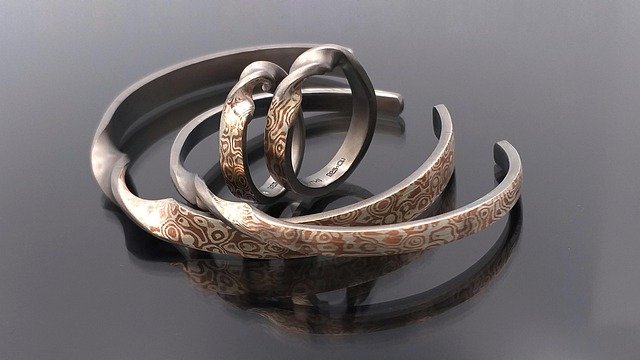What to Know About Getting Dental Implants in Turkey
Dental tourism is on the rise, and Turkey has become a well-known destination for implant procedures. But what should travelers know before committing. This guide offers a balanced look at the experience, from clinic standards to aftercare tips. Learn more.

Dental implants have transformed the way people restore missing teeth, providing a long-lasting and natural-looking solution. Turkey has emerged as a leading destination for dental tourism, attracting thousands of international patients each year who seek quality care combined with cost savings. The country boasts modern dental facilities, experienced professionals, and comprehensive treatment packages that include accommodation and transportation. However, choosing to travel abroad for dental work requires careful planning and research to ensure safety, quality, and successful outcomes.
Overview of the Dental Implant Process and Timelines in Turkey
The dental implant procedure in Turkey typically follows international standards and protocols. During your initial consultation, a dentist will conduct a thorough examination, including X-rays or CT scans, to assess bone density and determine the best treatment approach. The actual implant placement involves surgically inserting a titanium post into the jawbone, which acts as an artificial tooth root. This procedure is usually performed under local anesthesia and takes about one to two hours per implant.
The timeline for completing dental implant treatment varies depending on individual circumstances. In traditional cases, the implant needs three to six months to integrate with the bone through a process called osseointegration. However, many Turkish clinics offer immediate loading protocols, where temporary crowns can be placed on the same day as implant surgery. The final restoration, including the permanent crown or bridge, is typically attached after the healing period is complete. Most patients plan to stay in Turkey for five to ten days for the initial procedure, with a possible return visit for final adjustments, though some clinics offer all-inclusive packages that complete treatment in a single trip.
Considerations for Choosing a Clinic and Preparing for Travel
Selecting the right dental clinic in Turkey requires thorough research and careful evaluation. Look for facilities that are accredited by international organizations such as the Joint Commission International or have certifications from recognized dental associations. Review the qualifications and experience of the dental professionals, checking for specializations in implantology and evidence of continuing education. Reading patient reviews and testimonials can provide valuable insights, but be cautious of overly promotional content.
Before traveling, arrange a virtual consultation to discuss your specific needs, treatment plan, and expected outcomes. Request detailed information about the materials and brands of implants used, as reputable clinics work with established manufacturers. Ensure the clinic provides clear communication in English and offers comprehensive aftercare instructions. Prepare necessary medical records, including dental X-rays and health history, to share with your Turkish dentist. Consider travel logistics such as visa requirements, travel insurance that covers dental procedures, and accommodation near the clinic for convenient follow-up visits.
Pros, Cons, and Practical Tips for International Dental Care
Pursuing dental implant treatment in Turkey offers several advantages. The most significant benefit is cost savings, with procedures often costing 50 to 70 percent less than in Western countries, without compromising quality. Turkish dental clinics frequently use the latest technology and materials, and many dentists have trained or practiced internationally. The opportunity to combine dental treatment with tourism in a culturally rich destination adds appeal for many patients.
However, there are important considerations and potential drawbacks. Language barriers may exist despite many clinics offering English-speaking staff. The distance makes immediate follow-up care challenging if complications arise after returning home. Different regulatory standards and legal recourse options compared to your home country require careful consideration. There is also the risk of selecting substandard clinics among the many options available, making thorough research essential.
Practical tips for international dental patients include allowing extra time in your schedule for unexpected delays or additional appointments. Maintain detailed records of your treatment, including implant specifications and warranty information. Establish a relationship with a local dentist at home who can provide follow-up care and address any issues. Join online forums or communities of dental tourists to learn from others’ experiences. Always prioritize quality and safety over cost savings when making your final decision.
Cost Considerations and Clinic Comparisons
Understanding the financial aspects of dental implant treatment in Turkey helps in planning and budgeting. Prices vary based on clinic location, dentist experience, implant brand, and the complexity of your case. The following table provides a general comparison of estimated costs at different types of facilities:
| Clinic Type | Implant Brand Examples | Cost Per Implant (USD) |
|---|---|---|
| Premium International Clinics | Straumann, Nobel Biocare | 800-1200 |
| Mid-Range Established Clinics | Osstem, MegaGen | 500-800 |
| Budget-Friendly Options | Various Turkish Brands | 300-500 |
Prices, rates, or cost estimates mentioned in this article are based on the latest available information but may change over time. Independent research is advised before making financial decisions.
These estimates typically include the implant post, abutment, and crown, but always confirm what is covered in quoted prices. Many clinics offer package deals that include multiple implants, accommodation, airport transfers, and follow-up visits, which can provide better value. Be wary of prices that seem too good to be true, as they may indicate lower quality materials or inexperienced practitioners.
Post-Treatment Care and Long-Term Maintenance
Successful dental implant outcomes depend significantly on proper aftercare and maintenance. Immediately following surgery, expect some swelling, minor bleeding, and discomfort, which can be managed with prescribed medications. Follow your dentist’s instructions regarding diet, typically starting with soft foods and gradually returning to normal eating. Maintain excellent oral hygiene while being gentle around the surgical site during the initial healing phase.
Long-term implant success requires regular dental check-ups, professional cleanings, and diligent home care including brushing, flossing, and possibly using specialized tools like interdental brushes. Avoid smoking, as it significantly increases the risk of implant failure. Attend follow-up appointments as scheduled, even if this requires coordinating with your Turkish clinic remotely or finding a local dentist familiar with your treatment. With proper care, dental implants can last 20 years or more, making them a worthwhile investment in your oral health.
Getting dental implants in Turkey can be a rewarding decision that combines quality treatment with significant cost savings and the opportunity to experience a fascinating country. Success depends on thorough research, careful clinic selection, realistic expectations, and commitment to proper aftercare. By understanding the process, weighing the pros and cons, and preparing adequately, you can make an informed decision about whether dental tourism in Turkey is right for you.
This article is for informational purposes only and should not be considered medical advice. Please consult a qualified healthcare professional for personalized guidance and treatment.




